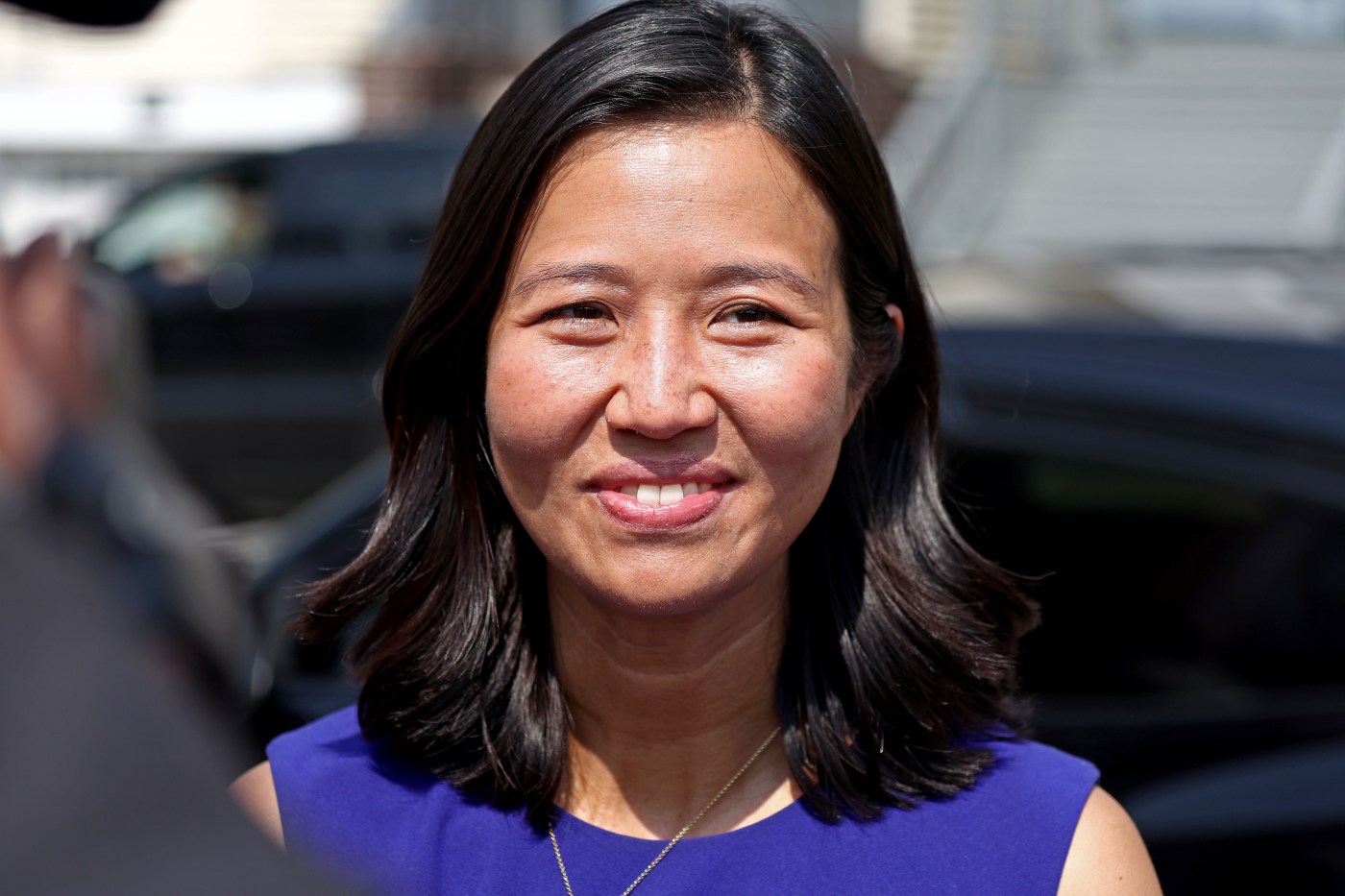
Editorial: Which comes first, Mayor Wu, housing or carbon emissions?
Mayor Michelle Wu has been hearing “whoa” a lot lately, from the pushback dousing her plan to move the John D. O’Bryant school to West Roxbury earlier this year, to the state Legislature putting the kibosh on her transfer tax proposal.
Now, the Boston Zoning Commission is tapping the brakes on plans to bring new construction to fall in line with Wu’s net-zero emission standards.
As the Herald reported, the Commission voted to block a proposal that seeks to speed up the timeline for new net-zero buildings from 2050 to 2025.
“I just think we’re pushing too fast, too soon,” said Commission Chair Jay Hurley, who voted against the proposal.
When it comes to fighting climate change, activists want action yesterday. It’s the same when it comes to building new, affordable housing. But when climate change is billed as an “existential threat,” does that mean it overrides other pressing, immediate needs?
Rising sea levels, beach erosion, floods and wild weather are certainly cause for concern. So is the state’s housing crisis. Tell a family waiting to exit a shelter or living hand to mouth to afford high rents that they can find a new place, but they’ll have to wait for developers willing to shell out money to meet these new requirements.
“I’m just trying to understand what the benefit of implementing this policy is,” Commissioner Michael DiMella said. “My context here is that the market is extremely difficult to develop and build into. Now we have a massive housing crisis that is an immediate need for the city, that is a major problem, and adding more costs on top of that.”
Building in Boston is not cheap. In a study released in May, think tank Pioneer Institute warned that inflation was hitting the cost of construction hard. The study found that material costs in January were 43% higher than those of January 2020, before the COVID-19 pandemic.
The cost of land is extreme in Massachusetts, with the Bay State sitting only behind Rhode Island in the nation, at $330,200 per acre, Pioneer’s Andrew Mikula wrote in the study.
Mikula cited how between January 2019 and January 2024, the number of active home listings in Greater Boston declined by 55%.
Why hit the gas on this plan? The United Nations, in its fight against global warming, called for emissions to be reduced by 45% by 2030 and reach net zero by 2050. Why must Boston hit the mark 25 years early, and what are we willing to sacrifice to get there?
Commissioner Drew Leff, who voted against the initiative, questioned why the city was seeking to shorten a zero-emissions timeline that had been “set up and agreed upon through reasonable processes” by “25 years.”
“Is this really a way for us to develop the housing and all those things that we need?, ” Leff said.” I know we’ve got to get there, but it does take some time to do this.”
A spokesperson for Wu said in a statement that the mayor plans to address some of the concerns raised by the commissioners, and looks “forward to bringing NZC back for a vote in the future.”
Triaging problems means that not everything can be at the front of the line. Wu has to choose which is more important right now: accelerating the net-zero timeline by 25 years, or putting a roof over Bostonians’ heads.
Editorial cartoon by Steve Breen (Creators Syndicate)

